- Home
- Catherine Coulter
Earth Song Page 3
Earth Song Read online
Page 3
The next day continued as the first, except that she was so hungry and thirsty she forgot for whole minutes at a time the fiery itching of her flesh and her own stink. She’d sunk into a kind of apathy when she suddenly heard a shout from one of Lord Henry’s guards. She stuck her nose up into the small air passage. Another shout; then: “Attack! Attack! Flank the last wagon! No, over there!”
Good God! Thieves!
The wagon that held Philippa lurched to a stop, leaned precariously to the left, then righted itself. She heard more shouting, the sound of horses’ hooves pounding nearer, until they seemed right on top of her, and then the clash of steel against steel. There were several loud moans and the sound of running feet. She wanted to help but knew that the only thing she could possibly do was show herself and pray that the thieves died of fright. No, she had to hold still and pray that her father’s men would vanquish the attackers. She heard a loud gurgling sound, quite close, and felt a bolt of terror.
There came another loud shout, then the loud twang of an arrow being released. She heard a loud thump—the sound of a man falling from his horse. And then she heard one voice, raised over all the others, and that voice was giving orders. It was a voice that was oddly calm, yet at the same time deep in its intensity, and she felt her blood run cold. It wasn’t the voice of a common thief. No, the voice . . . Her thinking stopped. There was only silence now. The brief fighting was over. And she knew her father’s men hadn’t won. They would tell no tall tales about this day. She waited, frozen deep in her nest of wool.
The man’s voice came again. “You, fellow, listen to me. Your guards are such cowards they’ve fled with but slight wounds to nag at them. I have no desire to slit any of your throats for you. What say you?”
Osbert wasn’t amused; he was terrified, and his mouth was as dry as the dirty wool in the wagon, for he’d swallowed all his spit and could scarce form words. But self-interest moistened his tongue, and he managed to fawn, saying, “My lord, please allow this one wagon to pass. Thass ours, my lord, my brother’s and mine, and thass all we own. We’ll starve if ye take it. The other two wagons are the property of my lord Henry de Beauchamp. He’s fat and needs not the profits. Have pity on us, my lord.”
Philippa wanted to rise from her bed of wool and shriek at Osbert, the scurvy liar. Starve indeed. The fellow owned the most prosperous of Lord Henry’s demesne farms. He was a freeman and his duty to Lord Henry lightened his purse not overly much. She waited for the man with the mean voice to cut out Osbert’s tongue for his effrontery. To her chagrin and relief, the man said, “ ‘Tis fair. I will take the two wagons and you may keep yours. Say nothing, fellow,” the man added, and Philippa knew he said those words only to hear himself give the order. Her father’s farmers would race back to Beauchamp to tell of this thievery, and likely bray about their bravery against overwhelming forces—and take her with them, if, that is, she was in the right wagon.
Suddenly the wagon moved. She heard the man’s voice say, “Easy on the reins, Peter. That mangy horse looks ready to crumple in his tracks. ‘Twould appear that Lord Henry is stingy and mean.”
Philippa wasn’t in the right wagon. She was in one of the stolen wagons and she had no idea where she was going. For that matter, when the farmers returned to Beauchamp they wouldn’t have any idea who’d attacked them.
Dienwald sat back on his destrier, Philbo, and looked upon the two wagons filled with fine raw wool, now his. He rubbed his hands together, then patted Philbo’s neck. The guards had fled into Treywen Forest. They would be fools to ride back to Beauchamp. If they did, Lord Henry would have their ears cut off for cowardice. Other parts of their anatomy would doubtless follow the ears. The farmers would travel to St. Ives. He knew their sort. Greedy but not stupid, and liars of superb ability when their lives were at stake. He imagined them playing the terrified and guiltless victims very well. He imagined them carrying on about this monster at least seven feet tall whose face was nearly purple with scars, who’d threatened to eat them and spit them out in the dirt. And they wouldn’t be far off the mark. That was the beauty of Gorkel; he hadn’t said a word to the terrified peasants; he didn’t have to. Perhaps Lord Henry would even let them keep the proceeds from the sale of their wool—well, not all, but enough for their efforts. And St. Erth now had enough wool for Old Agnes to weave her gnarly fingers to the bone; and in addition, he had two new horses. Not that the nags were anything wonderful, but they were free, and that made them special. It wasn’t a bad outcome. Dienwald was content with his day’s work. He would remember to give Crooky an extra tunic for his information.
“Don’t dawdle,” he called out. “To St. Erth! I want to reach home before nightfall.”
“Aye, my lord,” Eldwin called out, and the wagon lurched and careened wildly as the poor nag broke into a shuffling canter. Philippa fell back, bringing piles of the filthy wool over her face. She couldn’t breathe anything save her own stench until she managed to burrow another breathing hole. Where was St. Erth? She’d heard of the place but didn’t know its location. Then her stomach soured and she thought only to keep herself from retching. The nausea overpowered her and she clawed through the layers of wool until her head was clear and the hot sun was searing her face from overhead.
Philippa kept drawing deep gulping breaths, and when her stomach eased, she grew brave enough to look around. The man driving the wagon had his back to her. She craned her neck and saw the other wagon ahead, and beyond the first wagon rode six men. All were facing away from her. Which one was the leader, the lord? They were all poorly garbed, which was odd, but their horses seemed well-fed and well-muscled. Philippa, her stomach snarling even more loudly, tried to ignore it and take stock of her surroundings. She had no idea where she was. Gnarled oak trees, older than the Celtic witches, grew in clumps on either side of the pitted dirt road. She fancied she would get an occasional sniff of the sea from the north. Mayhap they were traveling directly toward St. Ives. Mayhap all was not lost.
Philippa continued thinking optimistically for another hour. They passed through two small villages—clumped-together huts, really, nothing more. Then she saw a castle loom up before them. Set on a high rocky hill, stunted pine trees clustered about its base, was a large Norman-style castle. Its walls were crenellated and there were arrow loops, narrow windows in the four thin towers and walls at least eight feet thick. It was gray and cold, an excellent fortress that looked like it would stand for a thousand years. It stood guard like a grim sentinel over mile upon mile of countryside in all directions. As the wagons drew nearer, Philippa saw there was no moat, since the castle was elevated, but there was a series of obstacles—rusted pikes buried in the ground at irregular intervals, their sharp teeth at a level to rip open a horse’s belly or a man’s throat if he fell on them. Then came the holes covered with grass and reeds, holding, she imagined, vertical spears. The wagons negotiated the obstacles without hesitation or difficulty.
Philippa heard a loud creaking sound and saw twenty-foot gates made of thick oak slowly part to reveal a narrow inner passage some thirty feet long, with withdrawn iron teeth of a portcullis ready to be lowered onto an enemy. The wagons rolled into an inner ward filled with men, women, children, and animals. It was pandemonium, with everyone talking at once, children shrieking, pigs squealing, chickens squawking. There were more people and animals here than in the inner ward at Beauchamp, and Beauchamp was twice as big. Even the chickens sounded demented.
Philippa barely had time to duck under the wool again before the wagons were surrounded by dozens of people cheering and shouting congratulations. She heard the thick outer gates grind close again, and it seemed a great distance away.
Philippa felt her first complete shock of fear. Her optimism crumbled. She’d done it this time. She’d truly acted with her feet and not with her brain. She’d jumped into a slimy moat and then into a wagon of filthy raw wool. And now she was alone at a stranger’s castle—a prisoner, or worse. She was so hungry she w
as ready to gnaw at her fingers.
The wagon lurched to a sudden jolting halt. Dozens of hands rocked the wagon. Philippa felt them grabbing at the wool, felt their hands sifting through the layers, nearer and nearer to where she was buried.
Then she heard the leader’s voice, closer now, saying something about Gorkel the Hideous and his magnificent visage, and then her stomach announced its rebellion in no uncertain terms and she fought her way up through the wool until she flew out the top, gasping, gulping the clean air.
“God’s glory,” Dienwald said, and stared.
A little boy bellowed, “What is it, Papa? A witch? A druid ghost? Thass hideous!”
Gorkel shuddered at the apparition and yelled, “ ‘Tis more hideous than I! God gi’ us his mercy! Deliver us from this snare of the devil’s!”
Dienwald continued to stare at the daunting creature lurching about, its arms flapping, trying to keep its balance in the shifting wool. The creature was tall, that much was obvious, its head covered with wool, thick and wild and sticking straight out. Then the great wigged hag gained its footing and turned toward him downwind, and he gagged. The noxious odor surpassed that of his many villeins who didn’t bathe from their birth until their death.
The creature suddenly began to shake itself, jerking away clumps of wool with its grubby fingers, until its face was cleared and he saw it was a female sort of creature staring back at him with frightened eyes as blue as the April sky that was just beginning to mellow into late afternoon.
His people were as silent as mourners at a pope’s tomb—an achievement even St. Erth’s priest, Cramdle, had never accomplished in his holiest of moments—all of them staring gape-mouthed and bug-eyed. Then slowly they began to speak in frightened whispers. “Aye, Master Edmund has the right of it: thass a witch from the swamp.”
“ ‘Tis most likely a crone tossed out for thievery!”
“Nay, ’tis as Gorkel says: thass not human, thass an evil monster, a punishment from the devil.”
Edmund yelled, “ ’Tis a witch, Papa, and she’s here to curse us!”
“Be quiet,” Dienwald told his son and his people. He dug his heels gently into Philbo’s sleek sides. He got within five feet of the ghastly female and could not bear to bring himself closer. He fought the urge to hold his nose.
“I’m no witch!” the female shouted in a clear loud voice.
“Then who are you?” Dienwald asked.
Philippa turned to stare at the man. She wasn’t blind. She saw the distaste on his face, and in truth, she couldn’t blame him. She touched her fingers to her hair and found that her cap was long gone and the thick curls had worked free of the braid and were covered with slime from the Beauchamp moat and crowned with clumps of the squalid wool. She could just imagine what she looked like. She felt totally miserable. People were making the sign of the cross as they stared at her, horror and revulsion on their faces, calling upon a dizzying array of saints to protect them.
And she was Philippa de Beauchamp, such a wondrous and beauteous girl that Ivo de Vescy had tried to force her so she would wed him. It was too much. By all the saints, even William de Bridgport wouldn’t want her now. She imagined herself standing before him covered with slime and wool, her smell overwhelming. Surely he would shriek like the little boy had. She pictured de Bridgport turning and running, his fat stomach bouncing up and down. She couldn’t help herself. She laughed.
“I am in obvious disarray, sirrah. Forgive me, but if you would allow me to quit your very nice castle, I will be on my way and you won’t have to bear my noxious smell or my company further.”
“Don’t move,” Dienwald said, raising his hand as she moved to climb over the side of the wagon. “Now, answer me. Who are you?”
It was the man with the mean deep voice, and her brief bout of laughter died a quick death. She was in a very dangerous situation. It didn’t occur to her to lie. She was of high birth. No one with any chivalry would hurt a lady of high birth. She threw back her wild bushy head, straightened her shoulders, and shouted, “I am Philippa de Beauchamp, daughter of Lord Henry de Beauchamp.”
“A witch! A lying crone!”
“I am not!” Philippa shouted, furious now. “I might look like a witch, but I’m not!”
Dienwald gazed at the hideous apparition, and it was his turn to laugh. “Philippa de Beauchamp, you say? From my vantage, ‘tis barely female you appear, and such an unappetizing female that my dogs would cringe away from you. In addition, you have likely spoiled some of my wool.”
“She will curse us, Papa!”
“Your wool? Ha! ‘Tis my father’s wool and you are nothing more than a common thief. As for you, you loud crude boy, I am mightily tempted to curse you.”
Edmund shrieked, and Dienwald began to laugh. His people looked at him, then at the female creature, and they began to laugh as well, their chuckles swelling into a great noise. Philippa saw a misshapen fellow standing near the steps to the great hall, and even he was cackling wildly.
She wished now she’d lied. If she’d claimed to be a wench from a village, perhaps he’d simply have let her leave. But no, she’d told the truth—like a fool. How could she have imagined chivalry from a man who’d stolen two wagons of wool? Well, there was no hope for it. Up went her wool-clumped chin. “I am Philippa de Beauchamp. I demand that you give me respect.”
The moment the creature had opened her mouth, Dienwald realized she wasn’t an escaped serf or a girl from the village of St. Erth. She spoke like a gentlewoman—all arrogant, and loud, and haughty—like a queen caught in the jakes with her skirts up, yelling at the person who’d seen her. What the devil was this damned female doing hidden in a wool wagon, stinking like a hog’s entrails, and covered with slime?
“I have long thought Lord Henry to be a red-nosed glutton whose girth makes his horses neigh in dread of carrying his bulk, but even he couldn’t have been cursed with such as you. Now, get you down from the wagon.” Dienwald watched her weave about, gain her balance, and climb down. She was very tall, and his villeins moved away from her, especially those unfortunate enough to be downwind of her. She stood on the ground, watching him, looking so awful it would curdle the blood of the unwary. He let Philbo back away from the fright and shouted at her, “Don’t move!”
Dienwald dismounted, tossed the reins to his master-at-arms, Eldwin, and strode over to the well. He filled a bucket, then returned to the wagon. Without hesitation, he threw the bucket of water over her head. She wheezed and shrieked and jerked about, and some of the wool rolled off her body and tunic. He could see her face now, and it wasn’t hideous, just filthy. “More water, Egbert!”
“Water alone won’t get me clean,” Philippa said, gasping from the shock of the cold water. But she was grateful; she could now sniff herself without wanting to gag. She licked her lips and gratefully swallowed the drops of water that remained.
“I can’t very well strip you naked here in my inner ward and hand you a chunk of lye soap. I mean, I could, but since you claim to be a lady, you would no doubt shriek were your modesty defiled.”
A howl of laughter met this jest, and Philippa tried not to react. She said, calm as a snake sunning itself on a warm rock, “Couldn’t I have the soap and perhaps go behind one of your outbuildings?”
“I don’t know. My cat has just had kittens back there, and I hesitate to have her so frightened that her milk dries up.” Dienwald felt the laughter billowing up again. He yelled for lye soap; then added, “Egbert, take the creature behind the cookhouse and leave her be. Look first for Eleanor. If she and her kittens are there, take the creature behind the barracks. Agnes, fetch clean clothes for her and attend her. Then bring her to me—but only when she no longer offends the nose.”
“But, Papa, she’s a witch!”
“Officious little boy,” Philippa said as she turned on her bare heel—her boots were buried somewhere in the wool—and followed the man with the wonderful bucket of water.
“Careful
what you call the creature, young Edmund,” Crooky said, hobbling up. “It might cast a foul spell on you. Thass a relic from Hades, master.” He threw back his head and cleared his throat. Dienwald, recognizing all too well the signs, yelled, “Keep your lips stitched, fool! No, not a word, Crooky, not a single foul rhyme out of your twitching mouth.
“As for you, Edmund,” he continued to his son, “the creature isn’t a relic. Relics don’t turn your stomach with their stench, nor have I ever seen a relic that talked back to me. Now, let’s have our wool begin its progress into cloth and into tunics. Prink! Get your fat arse out here!”
3
“The well will go dry before the creature is clean enough for mortal viewing and smelling,” Dienwald said, rubbing his jaw as he spoke.
“Aye, thass the truth,” said Northbert, who was sniffing the wool. “ ‘Tis not a virtuous smell, my lord,” he added, picking up a clump of wool and bringing it to his nose, an appendage flattened some ten years before by a well-aimed stone.
“We’ll let Old Agnes deal with it,” Dienwald said.
“There she comes!” Edmund shouted.
Dienwald looked up at his son’s yell. Indeed, he thought, staring at the female vision striding toward him, barefoot, the rough gown nearly threadbare and loose everywhere except her breasts. Her hair was a damp wild halo around her head, hair the color of dark honey and fall leaves and rich brown dirt, and growing curlier by the minute as it dried.
She walked up to him, stopped, looked him squarely in the eye, and said, “I am Philippa de Beauchamp. You are a thief, but you also appear to be master of this castle and thus my host. What is your name?”
“Dienwald de Fortenberry. Aye, I am lord of this castle and master of all those herein, including you. Now, I have much to say to you, and I don’t wish to speak in front of all my people. Follow me.”

 The Cove
The Cove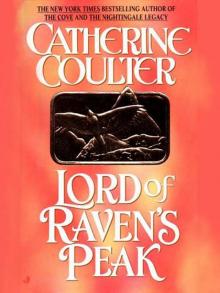 Lord of Raven's Peak
Lord of Raven's Peak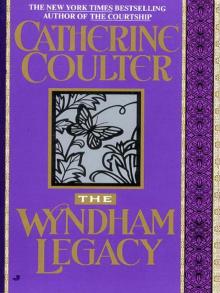 The Wyndham Legacy
The Wyndham Legacy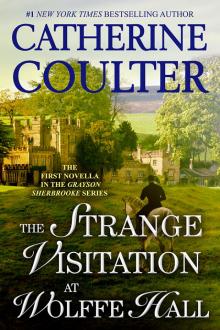 The Strange Visitation at Wolffe Hall
The Strange Visitation at Wolffe Hall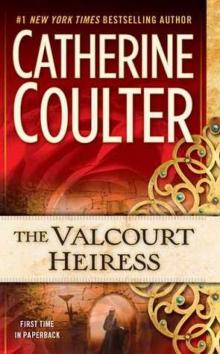 The Valcourt Heiress
The Valcourt Heiress Bombshell
Bombshell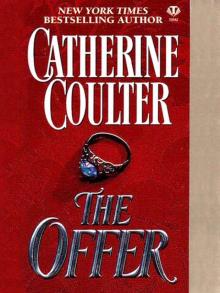 The Offer
The Offer The Edge
The Edge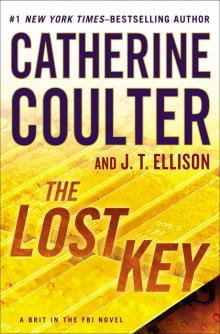 The Lost Key
The Lost Key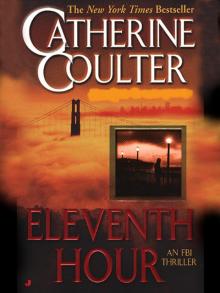 Eleventh Hour
Eleventh Hour Blindside
Blindside Devil's Daughter
Devil's Daughter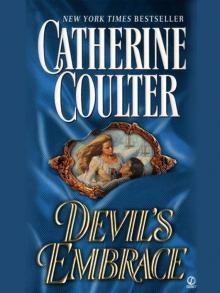 Devil's Embrace
Devil's Embrace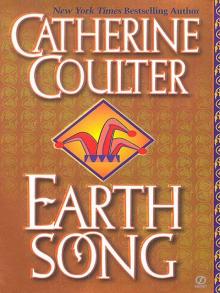 Earth Song
Earth Song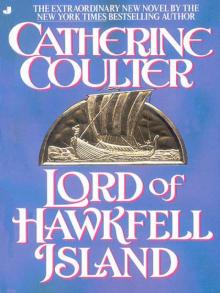 Lord of Hawkfell Island
Lord of Hawkfell Island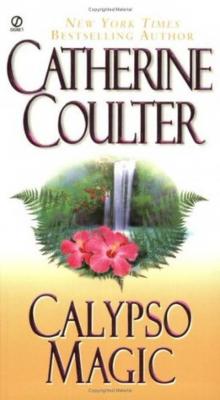 Calypso Magic
Calypso Magic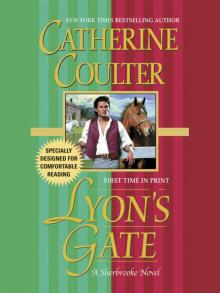 Lyon's Gate
Lyon's Gate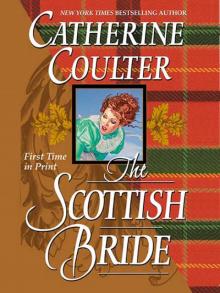 The Scottish Bride
The Scottish Bride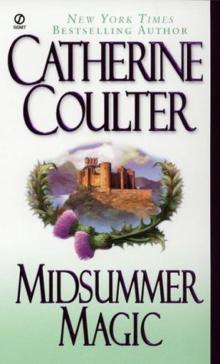 Midsummer Magic
Midsummer Magic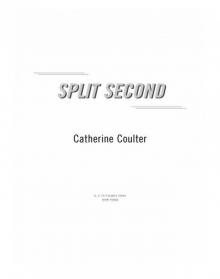 Split Second
Split Second Enigma
Enigma Blowout
Blowout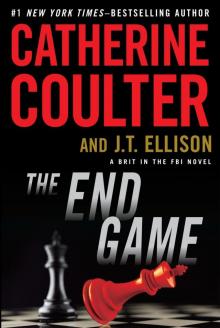 The End Game
The End Game Double Take
Double Take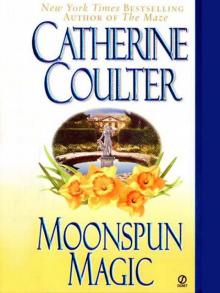 Moonspun Magic
Moonspun Magic The Courtship
The Courtship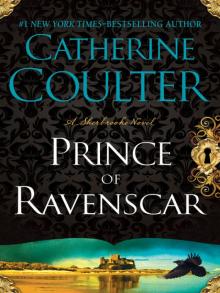 Prince of Ravenscar
Prince of Ravenscar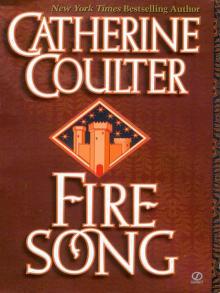 Fire Song
Fire Song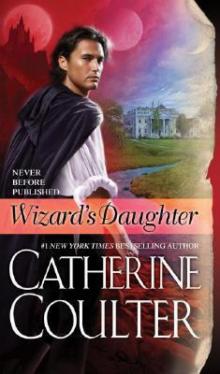 Wizard's Daughter
Wizard's Daughter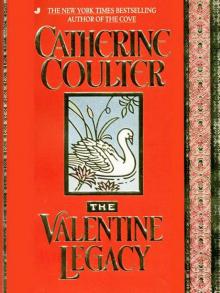 The Valentine Legacy
The Valentine Legacy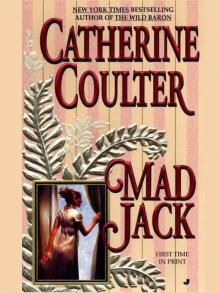 Mad Jack
Mad Jack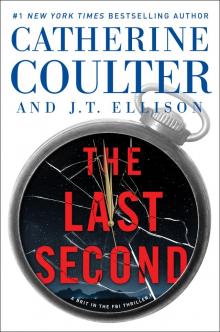 The Last Second
The Last Second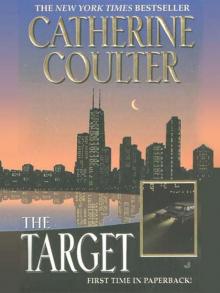 The Target
The Target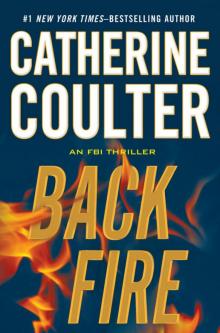 Backfire
Backfire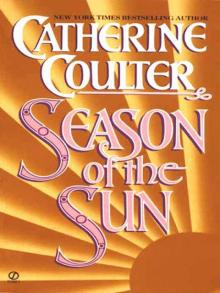 Season of the Sun
Season of the Sun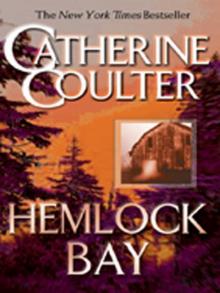 Hemlock Bay
Hemlock Bay Insidious
Insidious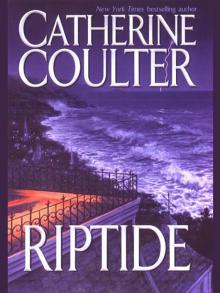 Riptide
Riptide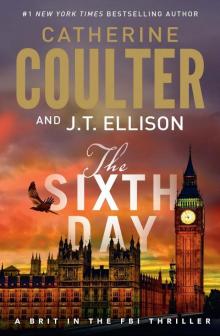 The Sixth Day
The Sixth Day Secret Song
Secret Song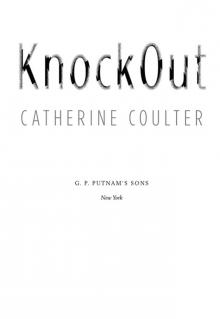 KnockOut
KnockOut Jade Star
Jade Star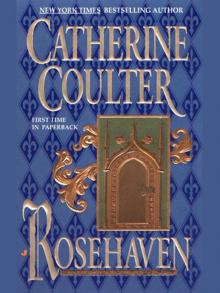 Rosehaven
Rosehaven The Hellion Bride
The Hellion Bride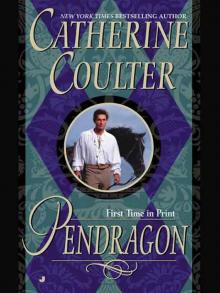 Pendragon
Pendragon Vortex
Vortex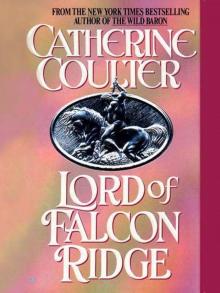 Lord of Falcon Ridge
Lord of Falcon Ridge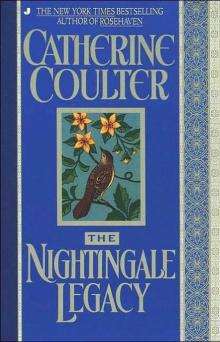 The Nightingale Legacy
The Nightingale Legacy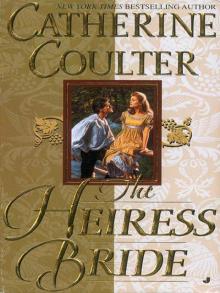 The Heiress Bride
The Heiress Bride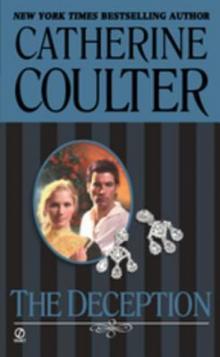 The Deception
The Deception The Maze
The Maze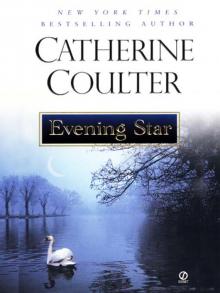 Evening Star
Evening Star Wild Star
Wild Star The Final Cut
The Final Cut Paradox
Paradox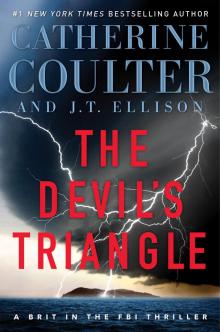 The Devil's Triangle
The Devil's Triangle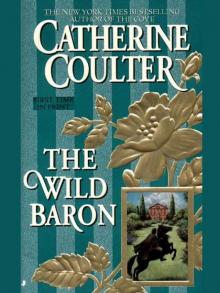 The Wild Baron
The Wild Baron Point Blank
Point Blank Labyrinth
Labyrinth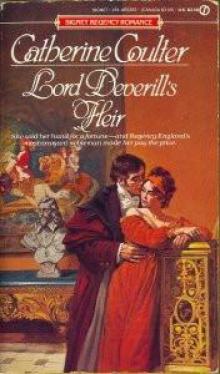 Lord Deverill's Heir
Lord Deverill's Heir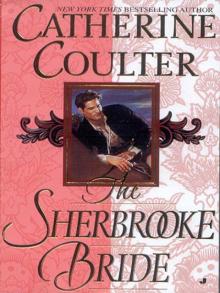 The Sherbrooke Bride
The Sherbrooke Bride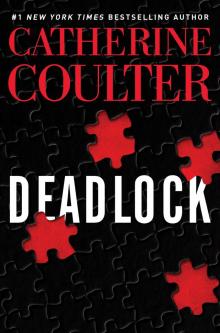 Deadlock
Deadlock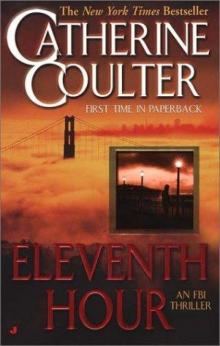 Eleventh Hour f-7
Eleventh Hour f-7 Power Play (An FBI Thriller)
Power Play (An FBI Thriller)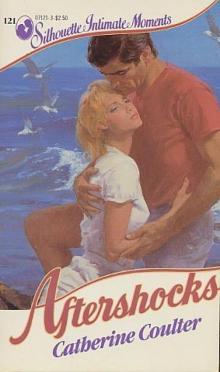 Aftershocks
Aftershocks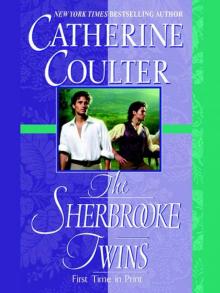 Sherbrooke Twins tb-8
Sherbrooke Twins tb-8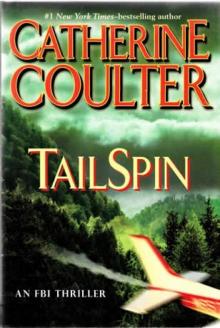 Tail Spin ft-12
Tail Spin ft-12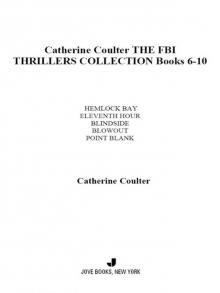 The FBI Thrillers Collection
The FBI Thrillers Collection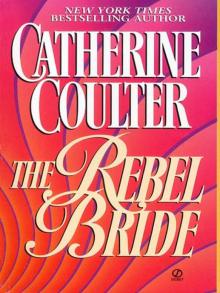 The Rebel Bride
The Rebel Bride Blindside f-8
Blindside f-8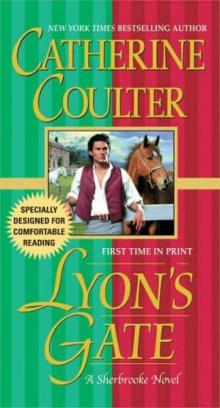 Lyons Gate tb-9
Lyons Gate tb-9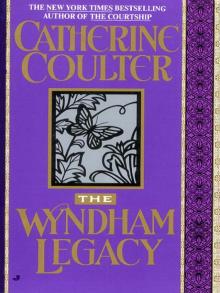 Wyndham Legacy
Wyndham Legacy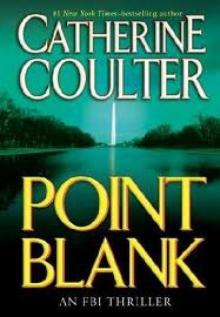 Point Blank f-10
Point Blank f-10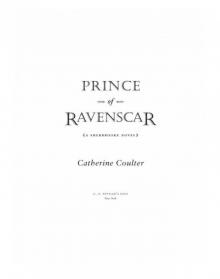 The Prince of Ravenscar
The Prince of Ravenscar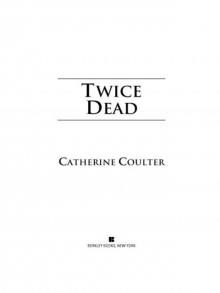 Twice Dead
Twice Dead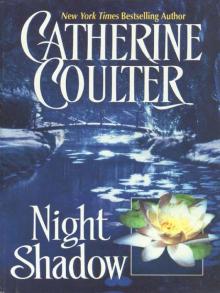 Night Shadow
Night Shadow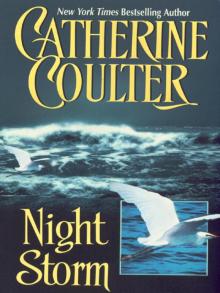 Night Storm
Night Storm The Beginning
The Beginning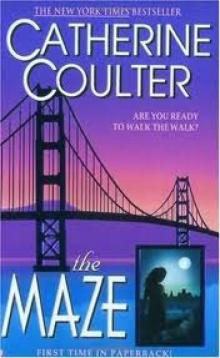 The Maze ft-2
The Maze ft-2 Beyond Eden
Beyond Eden The FBI Thrillers Collection: Vol 11-15
The FBI Thrillers Collection: Vol 11-15 FALSE PRETENSES
FALSE PRETENSES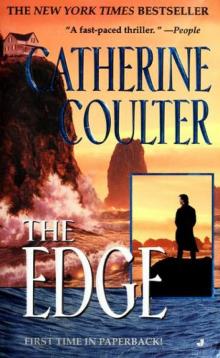 The Edge f-4
The Edge f-4 Bombshell (AN FBI THRILLER)
Bombshell (AN FBI THRILLER)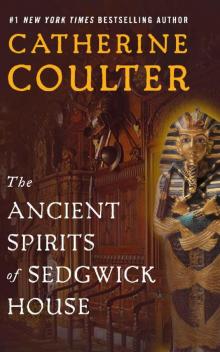 The Ancient Spirits of Sedgwick House (Grayson Sherbrooke's Otherworldly Adventures Book 3)
The Ancient Spirits of Sedgwick House (Grayson Sherbrooke's Otherworldly Adventures Book 3)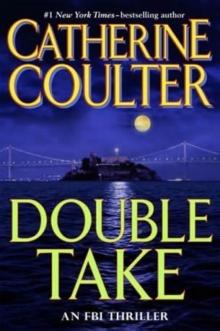 Double Take ft-11
Double Take ft-11 The Heir
The Heir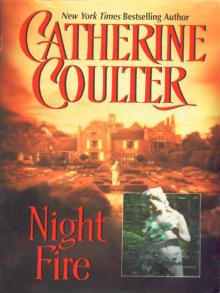 Night Fire
Night Fire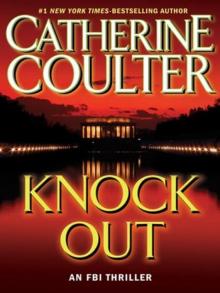 KnockOut ft-13
KnockOut ft-13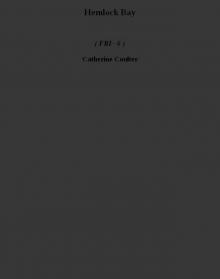 Hemlock Bay f-6
Hemlock Bay f-6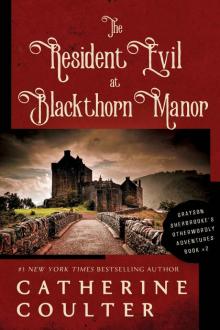 The Resident Evil at Blackthorn Manor (Kindle Single) (Grayson Sherbrooke's Otherworldly Adventures Book 2)
The Resident Evil at Blackthorn Manor (Kindle Single) (Grayson Sherbrooke's Otherworldly Adventures Book 2) Blowout ft-9
Blowout ft-9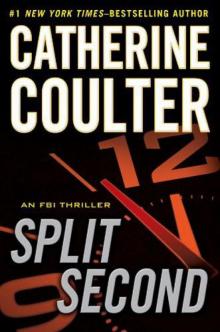 Split Second f-15
Split Second f-15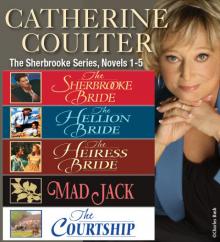 The Sherbrooke Series Novels 1-5
The Sherbrooke Series Novels 1-5 Impulse
Impulse Paradox (An FBI Thriller Book 22)
Paradox (An FBI Thriller Book 22)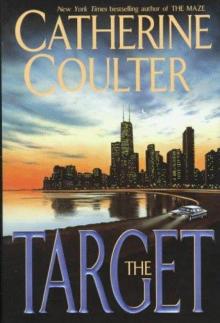 The Target f-3
The Target f-3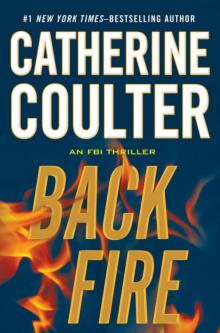 Backfire fst-16
Backfire fst-16 Born To Be Wild
Born To Be Wild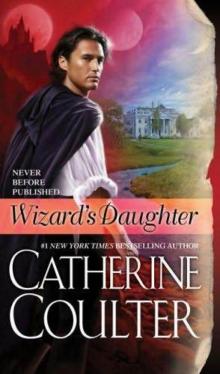 Wizards Daughter tb-10
Wizards Daughter tb-10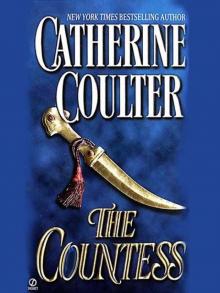 The Countess
The Countess